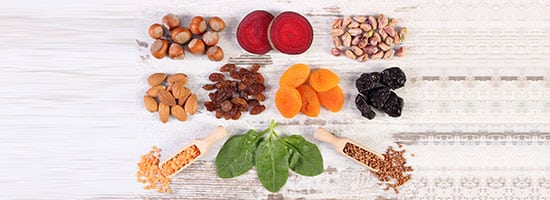
Many people are concerned with the impact of the food they consume to their weights. It is no secret that one’s weight is directly influenced by the number of calories they consume. It can be easily deduced that when someone consumes more calories than the amount used by the body, the weight will go up. The reverse happens when one consumes fewer calories.
Dietary Fat
Diets with low-fat components have long been assumed to provide a healthy weight and subsequently good health. As a result, people have reduced the quantity of fat in their diets. Despite this knowledge and efforts, the cases of obesity have skyrocketed. Clinical trials have shown that lowering fat levels in your diet does not simplify weight loss than a moderate or high-fat diet. This is because most low-fat foods have more carbohydrates, which still leads to weight gain. It is important to consider the type of fat one eats as opposed to the quantity so as to remain within a healthy weight bracket.
Proteins
High-protein diets have proved to possess weight loss advantages. This can be attributed to the following reasons:
- Improvement in body composition – Proteins help people to hang on to lean muscle as they lose weight. This can also contribute to boosting the energy burned side in the energy balance equation.
- More satiety – People tend to feel more satisfied and full after consuming more protein with fewer calories than after eating fat or carbohydrate. This helps lower the possibility of overeating which causes weight gain.
- Greater food thermic effect – Metabolism and storage of proteins consumes more energy than other forms of macronutrients. This is important as it increases the energy burnt each day, thereby reducing the calories in the body.
Higher proteins diets with lower carbohydrate levels also help improve the lipid profile of blood alongside other metabolic markers. This will subsequently reduce the chances of obesity.
Carbohydrates and Weight
Diets with higher sugar levels may lead to weight gain. On the other hand, foods with lower sugar and higher protein components may possess some weight loss advantages. When it comes to prevention of weight gain, it is important to put more emphasis on carbohydrate quality than quantity. Foods made from refined and milled grains contain rapidly digested starch. These may include white bread, white rice, and processed breakfast cereals. Such foods may lead to a fast increase in blood sugar that may cause hunger spikes. This appetite can lead to overeating, subsequently increasing the risk of gaining weight. Diet soda also functions the same way as the rapidly digested carbohydrates.
The adage clearly indicates that ‘you are what you eat.’ Therefore, when it comes to weight gain, it is important to emphasize the quality of the food one eats as opposed to the quantity. A quality and healthy diet is significant in maintaining a healthy body mass index, and weight loss surgery is sometimes needed to get started on the right track.

